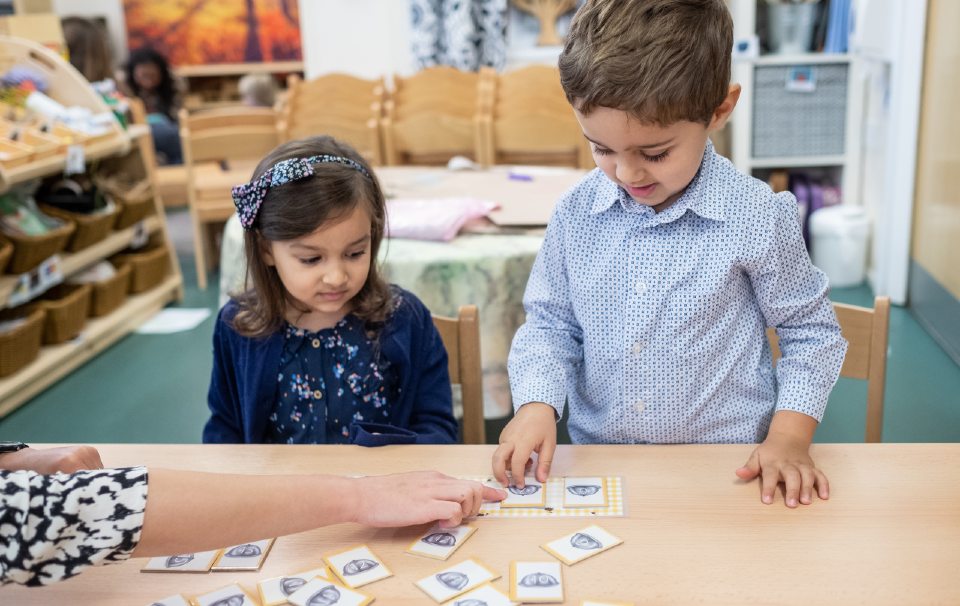Aimed at ages four to five, ‘Feed the Monster’ is a card game that encourages children to practice counting up and down.
A wide range of opportunities exist in everyday life that help youngsters practice counting upwards, but few activities are on offer to help them practice counting down – despite studies suggesting the skills are of equal importance.
The card game, developed by Dr Francesco Sella, Dr Ella James-Brabham, and Professor Tim Jay, is played on a yellow tablecloth-inspired mat with 10 spaces and starts by placing a monster card at the end of the mat.
The double-sided ‘food’ cards are scattered randomly on the table with the number-side facing up. One card is selected as the starting number and children must then select cards in ascending or descending numerical order to bring food to a monster.
Once an adult has confirmed the numbers are in the correct order, the cards are flipped over revealing what the monster has for dinner.
The game can be played in pairs and, as it features customisable numerical intervals, it can be enjoyed by players of different skill levels.
Feed the Monster aims to enhance children’s early numerical skills such as counting, number recognition and reading, symbolic number ordering, and spatial disposition of numbers on the number line while encouraging social interaction.
Dr Sella said: “We know from our previous research that number line interventions to improve mathematical skills and linear board games are particularly effective in improving numerical skills.
“Feed the Monster promotes active participation, focuses on the content without distractions, and encourages interaction with others to achieve learning objectives.
“Our primary goal for Feed the Monster is to complement and reinforce mathematical concepts taught in the classroom, allowing children to apply and practice their skills in a new context.
“The game aims to help children foster a genuine interest in math by making the subject fun and interactive.”
The Feed the Monster cards and instructions can be downloaded via the PDF links:
Dr Sella and Professor Jay are currently evaluating the impact of the game on children’s mathematics learning and encourage parents and guardians that play the game to share their feedback by emailing: f.sella@lboro.ac.uk
The game was developed using funding from the Nuffield Foundation.
More research from Loughborough University's Centre for Mathematical Cognition - which aims to harness insights from basic research on cognition to improve the teaching and learning of mathematics - can be found on the dedicated webpage.
For the next few weeks, the University’s PR team will be shining a light on research and expertise that is improving and enhancing the lives of children and young people. Keep an eye out on Twitter and TikTok for the latest Children and Young People campaign news by searching #LboroExperts. Or visit the Media Centre for the latest campaign and University news.

